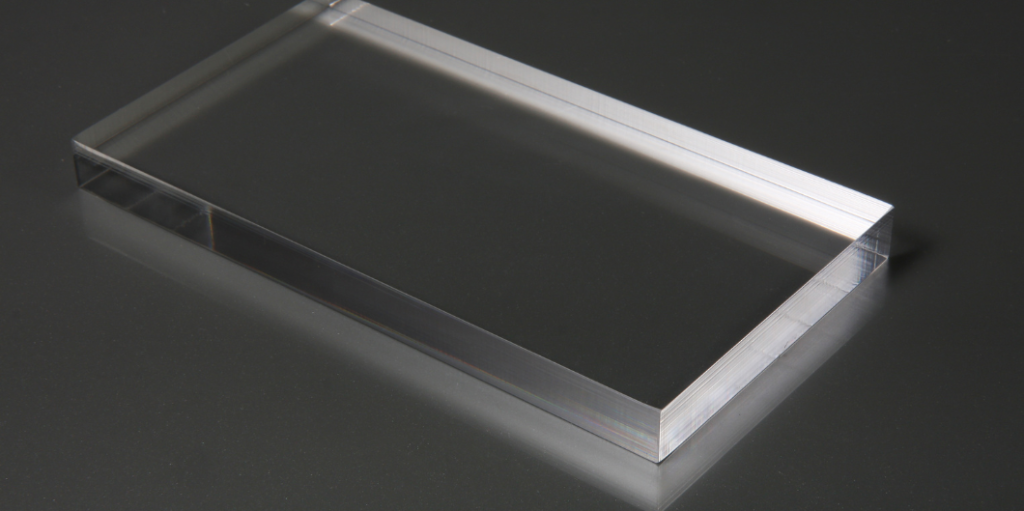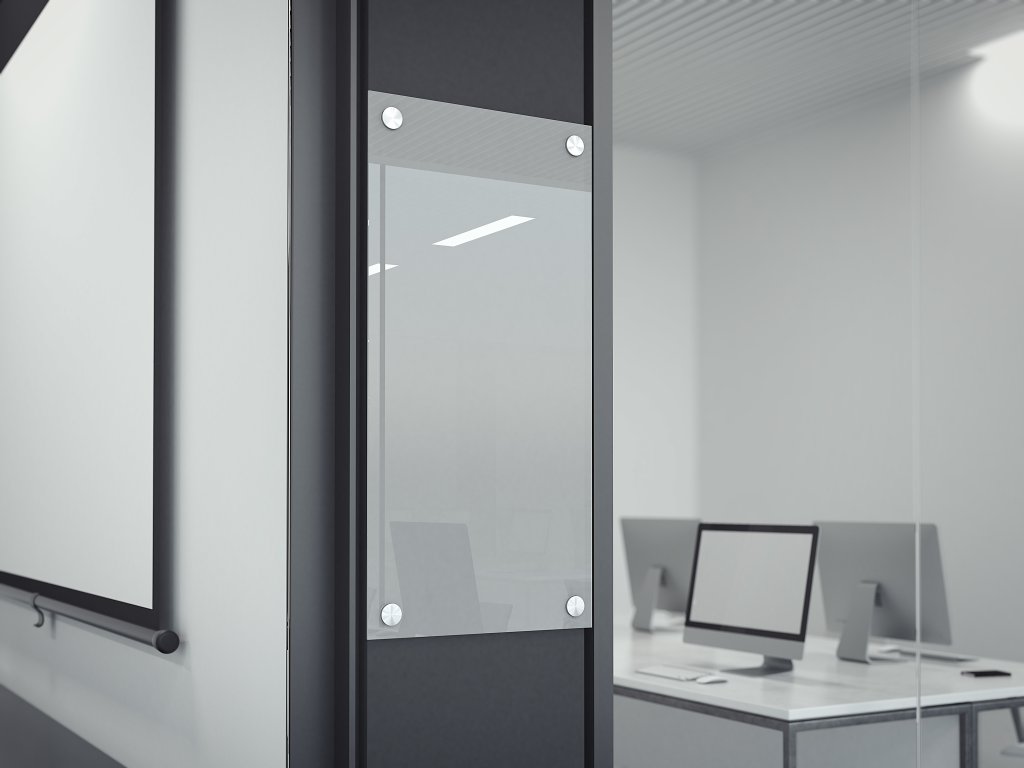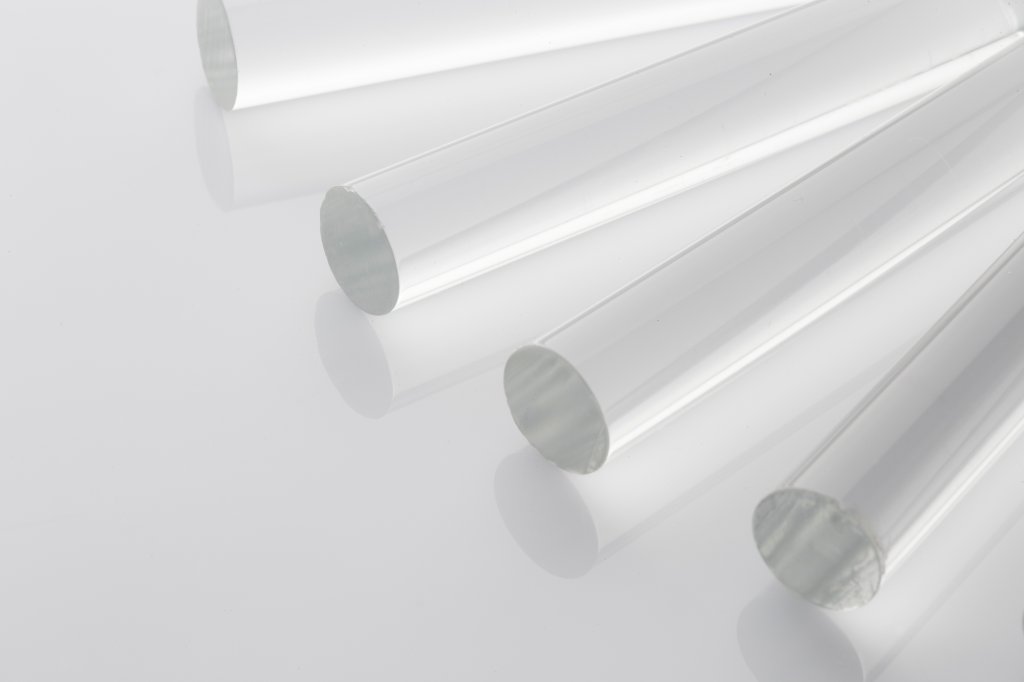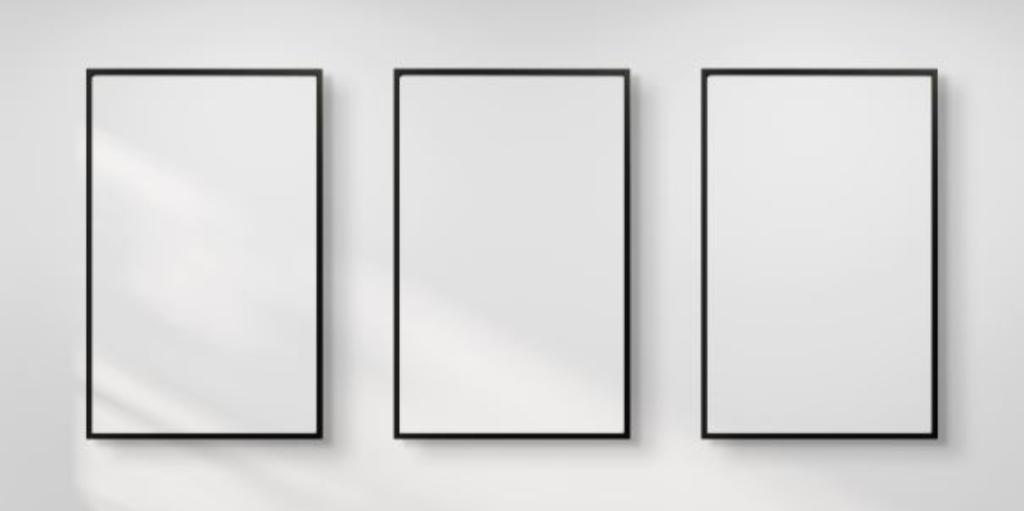Understanding the Potential of Using Acrylic Instead of Glass
Acrylic and glass are often some of the first materials that come to mind for those looking to purchase a clear sheet material. Although both products can look very similar, it’s important to understand that their differences go beyond just clarity. For the average consumer, choosing one material over the other may seem inconsequential, but instinctively choosing to install one over the other without first understanding how they differ can cost time and money later.


An Expert is just around the corner.
With over 100 years of combined product knowledge and industry experience, we are confident our plastics experts can help you find a solution for your application.
Differences Between Cast Acrylic and Extruded Acrylic
Before we begin discussing the differences between acrylic sheet and glass, we must first understand the two types of acrylic sheet. Cast acrylic is made by pouring liquid ingredients into a glass mold, where it then hardens into a strong sheet. Plexiglass, one of the most well-known acrylic brands, is manufactured using this cell cast process. Alternatively, extruded acrylic is manufactured using an extrusion process which pushes the liquid through an extruder and rollers to create a similar sheet. While there are some key differences between cast and extruded acrylic, the benefits of both are extremely similar.
How Acrylic Compares to Glass
Impact Resistance: Acrylic has a higher impact resistance than glass. It is also 10 times more shatter resistant than glass.
Optical Transmission: Acrylic can transmit up to 92% visible light, whereas glass usually transmits 80-90%.
UV Blocking: Acrylic is capable to providing 99% UV blocking, whereas most standard grade glass blocks almost none.
Weight: Acrylic weighs approximately 50% less than glass. The light weight of acrylic also helps improve the ease of installation and environmental efficiencies.
Malleability: Acrylic can be formed into shapes with ease while also maintaining excellent optical properties. Glass can be shaped into curves but is somewhat restricted.
Cost: Depending on the type of glass, acrylic is generally more expensive. However, installing glass can often be expensive, and the long-life expectancy of acrylic can lead to a more cost-efficient option in the long-run.
Scratch Resistance: Although acrylic is softer than glass and can be scratched more easily, new developments in hard coating technology have helped increase its protection.
When Should You Use Acrylic Sheet?
While acrylic and glass can be used interchangeably in some applications, there are many situations where you would want to take advantage of the superior properties of acrylic. Acrylic is the best choice for situations that require:
Better optical clarity
Long-term cost effectiveness
Easy fabrication and installation
Enhanced UV protection
Lightweight properties
Enhanced security
Where Is Acrylic Used?
Acrylic has quickly become one of the most versatile and widely used plastic materials in the world. It offers a clear advantage in a myriad of applications due to its exceptional clarity, durability, and resistance to UV light and weathering.
Commonly utilized in both indoor and outdoor settings, acrylic is the preferred material for products like signage, retail display cases, and window glazing. Its impact resistance and optical clarity make it an ideal choice for safety-related uses such as aquarium tanks, protective barriers in banks or stores, and face shields used in medical settings. Additionally, its ease of fabrication and ability to be molded into various shapes enhances its suitability for decorative panels, furniture, and lighting fixtures, showcasing acrylic’s flexibility across different industries.
This adaptability, combined with its aesthetic qualities, ensures that acrylic sheet continues to be indispensable in commercial, industrial, and residential applications.
Contact Us
At Piedmont Plastics, we supply a variety of performance plastic materials for numerous applications. We encourage you to contact us today to inquire about our various acrylic solutions or shop our online inventory today!
Get In Touch








